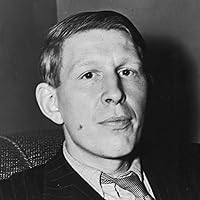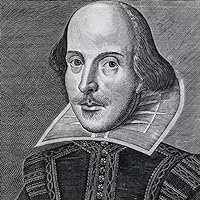Desdemona Quotes
Quotes tagged as "desdemona"
Showing 1-8 of 8

“willow trees, willow trees they remind me of Desdemona
I'm so damned literary
and at the same time the waters rushing past remind
me of nothing”
― Lunch Poems
I'm so damned literary
and at the same time the waters rushing past remind
me of nothing”
― Lunch Poems

“Adam leaned down and placed his lips next to her ear. He blew gently on it before he spoke. Mona leaned even closer into him as she listened intently to his words.
"Desdemona."
She moaned at the sound of her name on his lips.
"I need to tell you something." His words were accompanied by warm air caressing her skin.
"Before my time is done, I will watch the light fade from your eyes as you are sent to the hell you so deserve." Though his words promised destruction, the cadence of his voice still held her in a seductive rapture.”
― Beyond the Veil
"Desdemona."
She moaned at the sound of her name on his lips.
"I need to tell you something." His words were accompanied by warm air caressing her skin.
"Before my time is done, I will watch the light fade from your eyes as you are sent to the hell you so deserve." Though his words promised destruction, the cadence of his voice still held her in a seductive rapture.”
― Beyond the Veil

“He stopped. She heard the intake of his breath. “You are my country, Desdemona.” Yearning, harsh and poignant and she felt herself swaying toward him. “My Egypt. My hot, harrowing desert and my cool, verdant Nile, infinitely lovely and unfathomable and sustaining.”
She gasped.
His gaze fell, shielded by his lashes. An odd, half-mocking smile played about his lips. “You’ll never hear old Blake say something like that.”
She swallowed, unable to speak, her senses abraded by his stimulating words, her pulse hammering in anticipation? Trepidation?
“Remember my words next time he calls you a bloody English rose.”
― As You Desire
She gasped.
His gaze fell, shielded by his lashes. An odd, half-mocking smile played about his lips. “You’ll never hear old Blake say something like that.”
She swallowed, unable to speak, her senses abraded by his stimulating words, her pulse hammering in anticipation? Trepidation?
“Remember my words next time he calls you a bloody English rose.”
― As You Desire

“Everybody must pity Desdemona, but I cannot bring myself to like her. Her determination to marry Othello – it was she who virtually did the proposing – seems the romantic crush of a silly schoolgirl rather than a mature affection; it is Othello’s adventures, so unlike the civilian life she knows, which captivate her rather than Othello as a person. He may not have practiced witchcraft, but, in fact, she is spellbound.
Then, she seems more aware than is agreeable of the honor she has done Othello by becoming his wife.
[…]
Before Cassio speaks to her, she has already discussed him with her husband and learned that he is to be reinstated as soon as it is opportune. A sensible wife would have told Cassio this and left matters alone. In continuing to badger Othello, she betrays a desire to prove to herself and to Cassio that she can make her husband do as she pleases.
[…]
Though her relationship with Cassio is perfectly innocent, one cannot but share Iago’s doubts as to the durability of the marriage. It is worth noting that, in the willow-song scene with Emilia, she speaks with admiration of Ludovico and then turns to the topic of adultery. Of course, she discusses this in general terms and is shocked by Emilia’s attitude, but she does discuss the subject and she does listen to what Emilia has to say about husbands and wives. It is as if she had suddenly realized that she had made a mésalliance and that the sort of man she ought to have married was someone of her own class and color like Ludovico. Given a few more years of Othello and of Emilia’s influence and she might well, one feels, have taken a lover.”
― The Dyer's Hand and Other Essays
Then, she seems more aware than is agreeable of the honor she has done Othello by becoming his wife.
[…]
Before Cassio speaks to her, she has already discussed him with her husband and learned that he is to be reinstated as soon as it is opportune. A sensible wife would have told Cassio this and left matters alone. In continuing to badger Othello, she betrays a desire to prove to herself and to Cassio that she can make her husband do as she pleases.
[…]
Though her relationship with Cassio is perfectly innocent, one cannot but share Iago’s doubts as to the durability of the marriage. It is worth noting that, in the willow-song scene with Emilia, she speaks with admiration of Ludovico and then turns to the topic of adultery. Of course, she discusses this in general terms and is shocked by Emilia’s attitude, but she does discuss the subject and she does listen to what Emilia has to say about husbands and wives. It is as if she had suddenly realized that she had made a mésalliance and that the sort of man she ought to have married was someone of her own class and color like Ludovico. Given a few more years of Othello and of Emilia’s influence and she might well, one feels, have taken a lover.”
― The Dyer's Hand and Other Essays

“Lefty, who'd been observing all the ways Greece had been handed down to America, arrived now at where the transmission stopped. In other words: the future. He stepped off to meet it. Desdemona, having no alternative, followed. ”
― Middlesex
― Middlesex
“The English letter ‘O’ is similar to zero (0) in appearance. Iago’s [I am Ego = ‘I’ ‘a’m e‘go’] name starts with an egoistic ‘I’ and ends with an ‘O’ or zero. His ‘ego’ and envy lead him towards nothingness or zero! On the other hand, Othello’s name both starts and ends with ‘O’. It may be interpreted as- Othello has started his career from a ‘zero’, becomes successful, Iago’s deception makes him jealous or mad and he ultimately becomes a ‘zero’ by killing Desdemona and himself. However, Othello must not be called a ‘murderer’ because Iago has used Othello as a weapon to murder Desdemona and also led Othello towards death!”
―
―
All Quotes
|
My Quotes
|
Add A Quote
Browse By Tag
- Love Quotes 99k
- Life Quotes 77k
- Inspirational Quotes 74k
- Humor Quotes 44k
- Philosophy Quotes 30k
- Inspirational Quotes Quotes 27.5k
- God Quotes 26.5k
- Truth Quotes 24k
- Wisdom Quotes 24k
- Romance Quotes 23.5k
- Poetry Quotes 22.5k
- Death Quotes 20k
- Life Lessons Quotes 20k
- Happiness Quotes 19k
- Quotes Quotes 18k
- Faith Quotes 18k
- Hope Quotes 18k
- Inspiration Quotes 17k
- Spirituality Quotes 15.5k
- Religion Quotes 15k
- Motivational Quotes 15k
- Writing Quotes 15k
- Relationships Quotes 14.5k
- Life Quotes Quotes 14.5k
- Love Quotes Quotes 14.5k
- Success Quotes 13.5k
- Time Quotes 12.5k
- Motivation Quotes 12.5k
- Science Quotes 12k
- Motivational Quotes Quotes 11.5k


